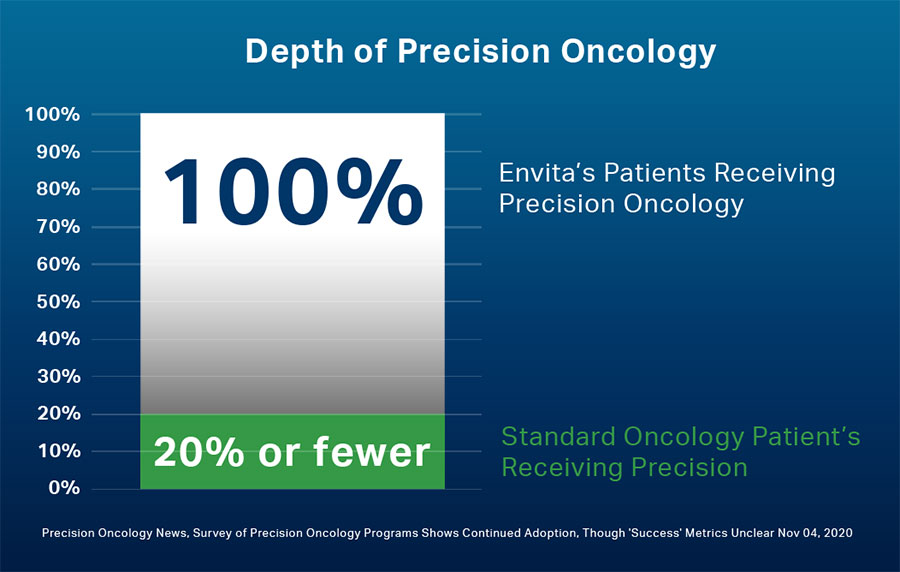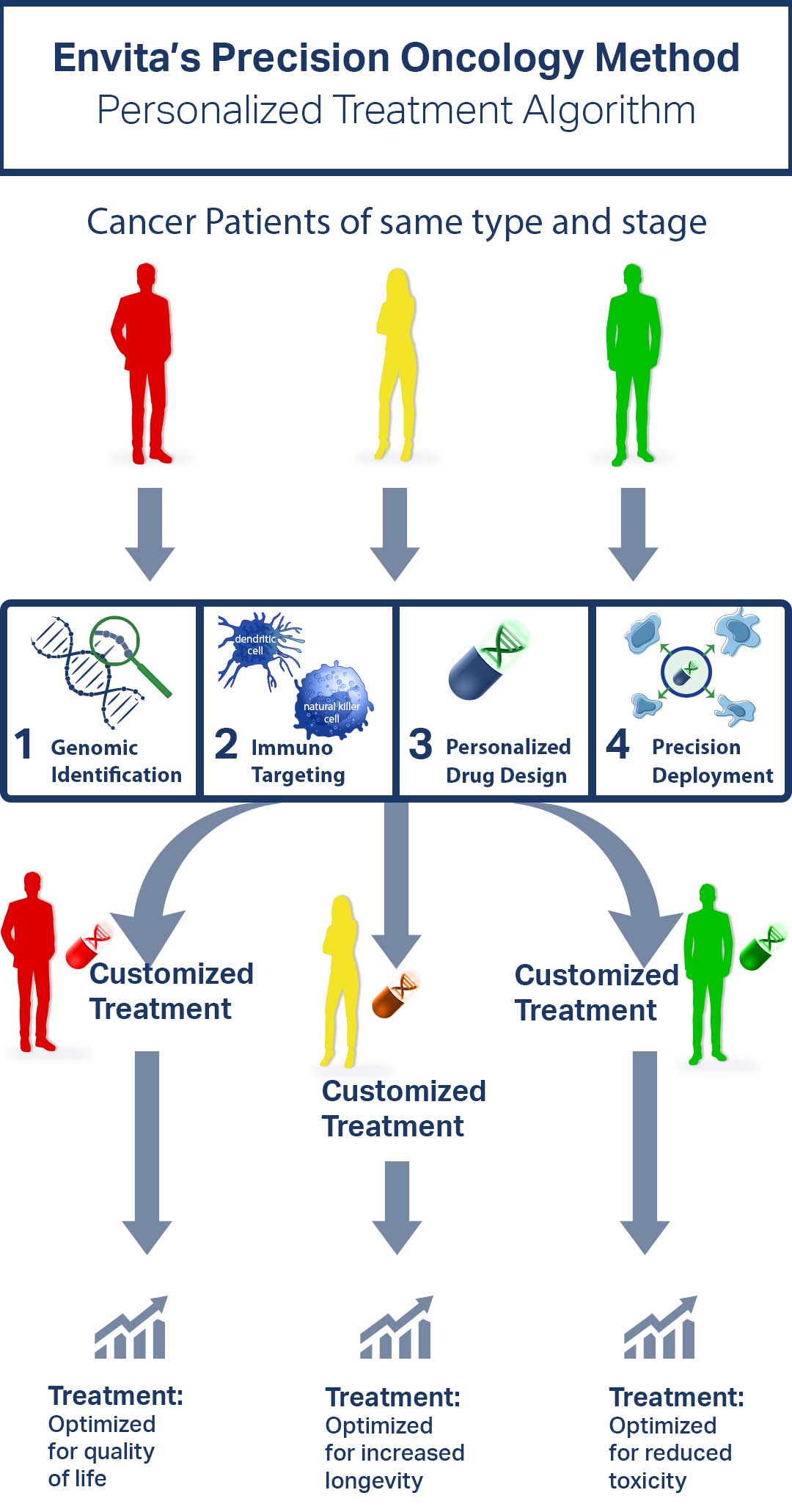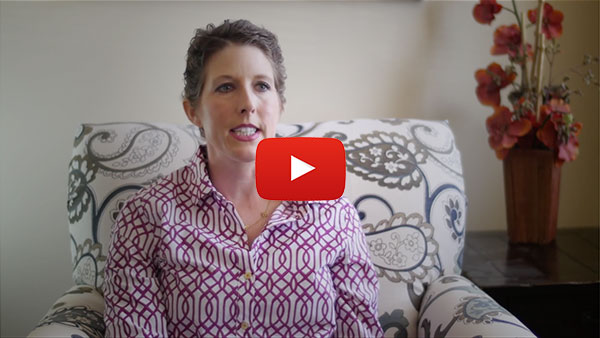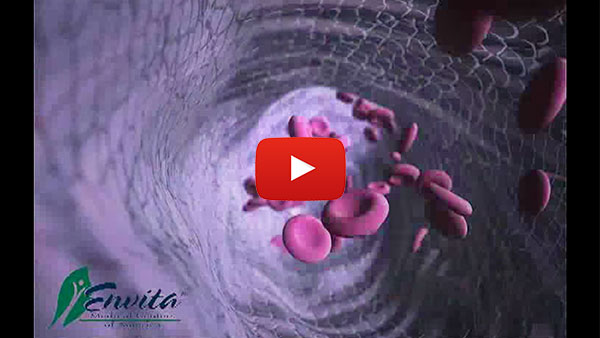Insurance-Based Care Limits Personalized Precision Cancer Treatment Options

The standard chemotherapy, radiation, surgery, or hormone therapy prescribed as part of your cancer treatment, may not be enough to help in curbing cancer growth and its metastatic spread. Medical studies estimate that 90% of deaths in cancer patients are caused due to metastasis, and cancer is the second most common cause of death in the US, according to the American Cancer Society. Additionally, the cancer treatments offered under health insurance coverage in the American health care system may be limited in their ability to prevent metastasis.
This limitation in health care services is the result of a lack of personalization in standard insurance-based protocols, which may be leading to cancer recurrence and metastasis. Cancer is a disease of genetic mutations, and genetics vary from person to person despite having the same type and stage of cancer, highlighting the need for personalization in oncology.
Missing Pieces in Standard Health Care Coverage for Cancer
To personalize medical care based on each patient's unique set of genetic mutations, one needs access to precision oncology, which is not available to everyone receiving standard insurance-based care. Several studies highlight the need for “precision medicine” to overcome the challenges of this one-size-fits all treatment model in oncology, and how the “marriage of genomics and immunotherapy" can play a crucial role in cancer treatment, which is exactly what is practiced at Envita Medical Centers, a world-class center for Personalized Precision Oncology.
Precision Oncology Lays the Foundation for a Personalized and Comprehensive Treatment Plan!

This disparity in access to precision oncology is not a result of your insurance status, as it does not depend on whether you are covered by a government plan like the Medicare or Medicaid, or by a private insurance with high premiums or deductibles. Patients are simply not eligible to receive precision oncology treatments as first-line therapy, according to the one-size-fits-all NCCN (National Comprehensive Cancer Network) guidelines, which dictate treatments based on cancer type and stage.
These guidelines, followed by all major cancer centers in the country, allow access to precision oncology as a follow-up intervention to failed first-line treatments, but the delay may be catastrophic when dealing with a life-threatening condition. To preempt such situations and help even late-stage cancer patients of all types, like breast cancer, prostate cancer, colorectal cancer, cervical cancer, or any other cancers, Envita follows precision oncology treatments for all their patients, irrespective of the cancer type or stage.
Detailed Precision Oncology Improves Health Outcomes!
Envita Precision Algorithm vs.
Standard Oncology Precision Testing
-
Envita Medical Centers
-
Standard Oncology
Precision Testing - RNA Transcriptome Genes
- Envita Medical Centers: 20,000+
-
Standard Oncology:
Unchecked
- SNV/CNV Genes
- Envita Medical Centers: 452
- Standard Oncology: 309
- Rearrangements/Fusion Genes
- Envita Medical Centers: 51
- Standard Oncology: 27
- Microsatellite Instability (MSI)
-
Envita Medical Centers:
Checked
-
Standard Oncology:
Checked
- Tumor Mutation Burden (TMB)
-
Envita Medical Centers:
Checked
-
Standard Oncology:
Checked
- BRCA 1/2
-
Envita Medical Centers:
Checked
-
Standard Oncology:
Checked
- Immunohistochemistry
-
Envita Medical Centers:
Checked
-
Standard Oncology:
Unchecked
- Chemosensitivity
-
Envita Medical Centers:
Checked
-
Standard Oncology:
Unchecked
- Concurrent Liquid Biopsy
-
Envita Medical Centers:
Checked
-
Standard Oncology:
Unchecked
- Exosomal miRNA Analysis
-
Envita Medical Centers:
Checked
-
Standard Oncology:
Unchecked
- Circulating Tumor Cells Enumeration
-
Envita Medical Centers:
Checked
-
Standard Oncology:
Unchecked
- Pharmacogenomics
-
Envita Medical Centers:
Checked
-
Standard Oncology:
Unchecked
- Individualized Therapy Recommendation
-
Envita Medical Centers:
Checked
-
Standard Oncology:
Unchecked
- CarcinogenicExposure - Root Causes
-
Envita Medical Centers:
Checked
-
Standard Oncology:
Unchecked
- Inflammation Markers
-
Envita Medical Centers:
Checked
-
Standard Oncology:
Unchecked
- Metabolic Target Drivers
-
Envita Medical Centers:
Checked
-
Standard Oncology:
Unchecked
*Individual results may vary. Envita makes no guarantees for outcomes.
Envita's vast experience has led them to develop proprietary in-depth genetic testing, which analyzes many more parameters than those in standard oncology precision testing. Standard cancer genetic tests analyze about 500 biomarkers to decide on a treatment protocol, but Envita, examines 20,000+ biomarkers, millions of analytes, and molecular profiles to determine a suitable treatment protocol for each individual patient. Their detailed precision oncology dives deep into each patient's unique genetic mutations and analyzes the risk factors causing potential recurrence and metastasis. This patient care approach helps in personalizing a proactive and comprehensive treatment plan which offers health outcomes where other major cancer hospitals across the country failed.
Why Insurance-Based Care Cannot Offer Personalized Precision Oncology
Insurance-based care is not personalized because healthcare providers follow the NCCN guidelines, which group patients based on their cancer type and stage, and not their unique genetic mutations, to determine treatment protocol.
These treatment protocols have designated CPT (Current Procedural Terminology) codes, which are numerical codes used to identify the services and procedures offered by the insurance companies' network hospitals and doctors. Health care providers can bill insurance companies only for these designated services and procedures, which are coded, leaving no room for customizing a unique treatment protocol with the maximum potential of attacking your specific cancer drivers. The lack of personalization explains why every patient with the same type and stage of cancer does not respond similarly to the same treatment, as dictated by insurance-based standard of care oncology.
Personalizing a treatment plan based on each patient's unique genetic mutations may serve as a strong preventive measure against cancer recurrence or metastasis, which is why Envita Medical Centers custom-designs a unique medical blueprint for each patient based on precision oncology.
Personalized precision oncology is built around the four-step process of genomic identification, immuno targeting, personalized drug design, and precision deployment, aimed at optimizing quality of life, increasing longevity, and reducing toxicity.

- Genomic Identification to unravel your specific cancer drivers
- Immuno Targeting to empower your immune system for better tackling the cancer
- Personalized Drug Design to target your specific cancer cell mutations
- Precision Deployment through proprietary treatments like GTFC and CIPI™ to optimize benefits of your comprehensive treatment
Sources of Financial Aid in Cancer Care
A cancer diagnosis always raises pertinent concerns about patient's life and cost of treatment, which is why awareness about the different sources of financial aid serves beneficial for everyone. Typically, most patients have health insurance, but knowing about other cost-sharing options in cancer care helps patients and their family members make better choices for their journey to recovery.
Following are the three cost-sharing options in healthcare, out of which insurance is best for standard primary care, while uninsured patients can depend on Employers Centers of Excellence Network (ECEN) and health-share plans, which may be promising for specialized care, such as precision oncology:
Health Insurance
Insurance-based treatments are not personalized to suit each individual patient, which is why the quality of care may not be the best for treating a disease like cancer, caused due to each patient's unique set of genetic mutations. Despite health policies like the Affordable Care Act which promotes early detection by mandating cancer screening through mammograms, colonoscopies, and other screening tests without copayments, nothing much has been done to encourage personalized care in oncology.
In a health insurance plan, you pay a monthly premium to the insurance company for covering a part or the entire cost of the medical services you avail from their network hospitals or doctors. Insurance companies negotiate deals with the medical partners in their network and take an administration fee of 10 to 15 percent of the total cost to care of each patient.
Typically, health insurance companies may cover 60 to 100 percent of the premium payer and their dependents' health costs. Depending on the amount of premium you pay and the type of your plan, the insurance company decides on the percentage of cost coverage for the medical service. In employer-sponsored health insurance policies, the employer pays a part of the premium for employees and their dependents.
Extent of Health Insurance Coverage for Personalized Precision Oncology Treatments:
World-class precision oncology centers like Envita follow a unique medical blueprint for each individual patient, combining conventional and natural therapies, which cannot be coded as per insurance company guidelines. As a result, the cost of treatment in such personalized care is not covered by insurance. However, patients who have health insurance may use 3rd party billers to claim some sort of out-of-network reimbursements for certain tests and prescription drugs. Generally, employer-supported health insurance plans offer better reimbursements as compared to personal health insurance plans. Since cancer is a life-threatening disease, some patients may be eligible to use the personal death benefits from their life insurance to treat cancer.
Benefits
- Good for standard care.
Drawbacks
- May not offer flexibility of personalized, precision treatment.
Employers Centers of Excellence Network (ECEN)
Through the ECEN, employees can access high-quality care at employer-selected Centers of Excellence (CoE) for certain specialties, such as oncology. The ECEN recognizes certain medical facilities as CoE based on their volume, quality, and outcome data, allowing employees the benefit of receiving care at centers with the highest level of quality, service, leadership, and best practices in their field. Generally, the employees have little to no out-of-pocket costs in an ECEN program, as a bundled payment is negotiated between the employers and the CoE.
Many corporations are motivated to collaborate with CoEs to offer specialized care for their employees, which ultimately reduces recurrent health costs. In fact, the findings of a 2020 Health Care Delivery Survey show, nearly three-quarters of employers (73 percent) intend to adopt and expand different types of health care delivery models, such as CoE.
Extent of ECEN Coverage for Personalized Precision Oncology Treatments:
Several companies collaborate with CoEs like Envita to offer next level personalized precision oncology at a fraction of the cost, based on 3rd party actuarial data. Corporations can join Envita's program at no cost, and later pay only for the services their employees receive. In such collaborations, employers pay only for healthcare costs agreed upon, and there are no hidden charges. Team Envita's confidence is indicated by the fact that they are the only center to offer an oncology withhold in the industry. In this value-based model, a portion of the cost is withheld until Envita's expert team can show benefit metrics for the patient.
Benefits
- Excellent for personalized care.
- Direct deals between the employers and CoE, eliminates the 3rd party brokerage cost.
Drawbacks
- The program is in a nascent stage so not many employers know about it yet.
Health-Share Plans
Health-share plans function like small cooperatives, with their members pooling in money to help one another in bearing medical costs. Like insurance, health-shares also have their designated network hospitals but there may be scope for discussions to get coverage for treatment at a medical facility of the health share plan member's choice.
Extent of Health Share Plans Coverage for Personalized Precision Oncology Treatments:
Health-share cooperatives are associated with several standard hospitals as well as super specialized world-class centers like Envita, enabling access to advanced personalized precision oncology treatments for their members. Depending on the rules, as decided by the health share plan members, these plans may cover a certain percentage or the entire cost of a member's cancer treatment.
Benefits
- Perfect for precision and personalized care, as there may be scope for negotiating coverage for treatment from a center of members' choice.
- Some health-share plans offer the liberty to seek treatment from a facility of your choice, without network limitations.
Drawbacks
- Since members of the health-share cooperatives make their own rules, there may not be a consensus on covering costs of cancer treatment at a facility of a member's choice.
Take a Tour of Envita Medical Centers
Irrespective of the source of financial support you choose, you need precision oncology to target the individual cancer drivers at the core of your cancer and recover holistically from this life-threatening condition. The expert team at Envita includes certified oncologists, interventional radiologists, researchers, and pharmacists, who undergo intensive training of over 1,500 hours to adapt to the personalized precision oncology approach. They have been relentlessly working for over 25 years to help patients with late-stage and complicated cancers. If you or your loved ones have any questions regarding cancer and the financial aspect of treatment, please free to call us at 1-866-830-4576.





















